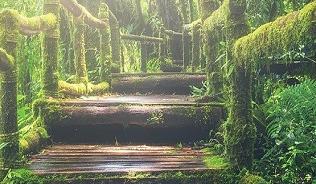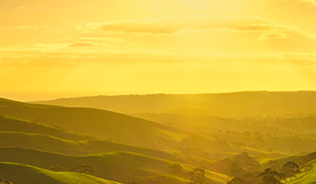As an organisation with large ambitions but limited resources, the IES is heavily reliant on the contributions of our volunteer community. 1-7 June is Volunteers’ Week, and we want to use this as an opportunity to recognise the tremendous contribution volunteers make to the work of the IES. Our work is supported and shaped by volunteers at all levels – from our governance committees to our invaluable review panels and chartership assessors, and the generous contributions of the environmental science community to our publications, webinars, and events, to name just a few examples. Thank you to each of the hundreds of volunteers who have generously donated their time to help us in our mission over the past year and beyond. This article provides a glimpse at the impact our volunteer community make to our work each year.
Governance committees
The IES is governed by our esteemed Council who guide and oversee the Institution’s activities and development. The IES Council comprises 12 members with a broad range of knowledge and experience within environmental science. The Council plays a key role in shaping the future work of the Institution and environmental sector, and has been instrumental in steering the organisation through the challenges that the Covid-19 pandemic has presented over the past year.
Our sister organisation, the Institute of Air Quality Management (IAQM), is overseen by the IAQM Committee, comprising 20 highly experienced and dedicated senior professionals from within the air quality field. Through the expertise of the committee and IAQM membership, the Institute has continued to act as the voice of air quality professionals in the UK by responding to government consultations and supporting best practice in the sector through the production of guidance and position statements.
The CHES Executive Committee comprises 10 members and oversees the accreditation scheme for over 120 university programmes and 50 member institutions, as well as providing representation and leadership to environmental education communities. The Executive Committee have worked to support universities throughout the Covid-19 pandemic and continue to engage with issues critical to the environmental education agenda, including three members sitting on the QAA Earth Sciences, Environmental Sciences, and Environmental Studies Subject Benchmark Statement Review Panel.
Application Review Panels, Quality Assurance Committee, Fellow Committee, and Ethics Committee
The IES and IAQM Application Review Panels (ARPs) comprise 50 IES and 6 IAQM volunteer assessors who generously offer their time and support to the Institution to assess new Associate and Full Member applications and membership regrade applications. Their expertise of environmental science and the sector is invaluable, and it is due to their commitment that the growth of our membership is possible. Over the last 12 months, they have assessed an incredible 580 applications!
Our Quality Assurance Committee (QAC) consists of 10 Vice Presidents and Council members who volunteer their exceptional guidance and knowledge to ensure application reviews maintain the high standard required for each membership level.
IES Vice Presidents sit on our Fellow Committee to assess Fellow applications. These senior professionals provide a greatly appreciated and essential service around their busy, distinguished careers. A corresponding Fellow Committee exists for IAQM Fellow applications.
One of our newer committees is our Ethics Committee, consisting of a diverse set of volunteers with a cross-disciplinary background and experience across the professional practice and the academic world. The volunteers that form this committee are all IES members, and some hold IAQM membership, and bring with them a wealth of knowledge around equality, diversity and inclusion, data protection, and the application of ethics. They have come together to form an advisory steering group on the ethics of our research and the policies and practices that impact our membership (e.g. our Code of Conduct).
Chartership assessors
We are fortunate to have 60 volunteer assessors who hold chartership status with the IES. These experts demonstrate their commitment to the chartership process and enable the IES to offer the Chartered Environmentalist (CEnv) and Chartered Scientist (CSci) opportunities to members of the Institution, either through our CEnv in a Day or CSci Accelerated workshops, or via the self-guided application route. Over 150 CEnv candidates were assessed via our workshop route over the past year, and assessors also volunteered their time to run Chartership Hotseat webinars in the summer of 2020, giving prospective Chartership candidates an opportunity to hear from experienced assessors and providing advice to candidates in the process of completing their CEnv application. Over this period, our CSci assessors have reviewed 40 CSci self-guided and workshop applications. These chartership volunteers truly are an invaluable and integral part of the Institution.
Despite undoubted additional demands on their time during the past year, our Chartership assessors, governance committees and review panels have continued to dedicate significant and, in many cases, additional time to their volunteer roles, for which we are extremely appreciative.
Communities
We have five special interest Communities: Air Quality (IAQM), Land Condition, Environmental Impact Assessment, Marine & Coastal Science, and, our newest Community, COP26. Each of these Communities are made up of dedicated volunteers who are experts in their chosen discipline. The volunteers that make up these Communities act as the voice for their special interest area, guiding the IES to generate suitable tailored CPD, tailored chartership guidance, relevant events, and networking opportunities. These invaluable volunteers also support on bespoke projects within their special interest, such as seeking the accreditation of special master’s courses or producing journal articles for the environmental SCIENTIST. In addition, both the IAQM and Land Condition groups have developed Early Career Networks to encourage and support professionals in the early stages of their career, providing access to the right tools, knowledge, and opportunities to ensure the next generation of environmental scientists can achieve their potential.
Contributors to our resources
The variety of resources that we produce as an Institution would simply not be possible without the contributions of members and the wider environmental science community who donate their time to presenting webinars, authoring articles for the journal, and contributing their expertise to help shape our responses to policy consultations, to give just a few examples. In 2020 alone, 83 individuals wrote an article for publication in the environmental SCIENTIST journal, and we held a record number of 33 webinars across the year, each presented by a volunteer from this fantastic community. We would like to extend our sincere thanks to everyone who has contributed to any of our journal editions, reports, analysis pieces, events, webinars, and policy responses over the past year for your invaluable contribution to this work.
Mentors
In January this year, we launched our new mentoring platform and have since seen 23 mentors sign up to the scheme, supporting members to achieve their career aspirations in the sector. These mentors have provided invaluable support, guidance, and advice to mentees at early stages in their careers, and demonstrate a strong commitment to not only their own CPD but the professional development of others.
Staff volunteers
Back in November 2020, we recruited a brilliantly talented volunteer in the form of Nishkala Thiru. Nish brought with her over 15 years of marketing knowledge and experience to help us assess our current marketing practices and advise on the development of new strategic communications and marketing plans. Nish’s expertise helped us to review our approach to membership recruitment, website design and future projects. We hope to begin embedding some of these review suggestions over the next few years as our team grows and we increase our in-house knowledge on the subject. Thank you for your hard work Nish!
To all those who have contributed to the work of the IES over the past year, thank you! We are truly grateful – we simply could not do what we do without you.



